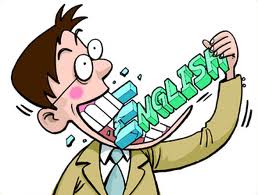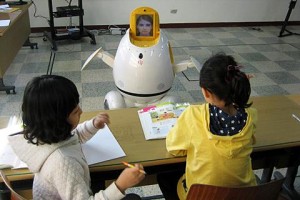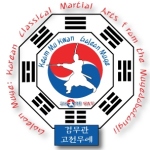Screw the air con! Give me some Korean lessons!
Speech impediments have always amused me and as a child I knew a shop in Edinburgh, where I holidayed every summer with my sister, that provided us a double treat because not only was it a sweet shop, but the owner had a massive problem pronouncing sibilants. Visiting her shop for a bag of cinnamon balls and some sour plums was one of our first adventures when we arrived in the city, for summer. Even to this day, my sister and I still reminisce about the, ‘Yesh lady,’ and the various means we used to illicit her to say ‘yesh’ or ‘shower plumsh.’
If I still had a childish sense of humour, and was ignorant to the detrimental effects such humour has on successful second language acquisition, I could have such fun taking the piss out of badly pronounced ‘Engrish.’ Let’s see, ‘I’m pine!’ is a very common blunder. Then there’s ‘I like flied lice’ or ‘egg flied.’ ‘Pacuum-creaner’ always fucks them as does ‘pish and chips.’ Unfortunately, my professionalism stifles the potential for amusement.
But have you noticed that Korean kids will take the piss out of your attempts at Korean. Almost on a daily basis I will hear students commenting on my pronunciation and even mimicking my attempts. Okay, the kids I can tolerate but when adults do it, though never ill-intended, it gradually grates. I have numerous friends, truly good friends, who nonetheless will ridicule my best efforts. I’ve even had friends write down my mistakes so they can subsequently recount them. Some of my gaffs concern confusing ‘eagle’ with ‘oak’ and ‘ginger’ with ‘thinking’ which have resulted in my asking for ‘eagle curd’ and ‘thinking’ in the supermarket. Then there is the confusion between ‘Dan Goon’ (단군) the legendary founder of Korea and ‘dang geun’ which is the common garden carrot! Indeed, the moment you start to use any languages that veers from the basic, especially idioms or snippets from the Thousand Character Classic (千字文 – 천자문), and you can guarantee you will deemed highly amusing.
And if I make an amusing cock-up the chances are its nature will be shared with every class in my school. I don’t mind someone having a giggle at my gaffs but have the decency, after you’ve had a laugh, to help me correct them! I used to criticise those foreigners who’ve spent ten years in Korea and can’t string a sentence together and now I am approaching my sixth year on the peninsula I am beginning to realise that it’s probably much easier to learn Korean back in England than it is in Korea.
As a nation, Koreans are immensely selfish at turning every encounter with a foreigner into an opportunity for them to learn English. How many times have I discovered a Korean who spoke little English and could tolerate my ponderous Korean only to have them ask several days later, if I could teach them English. I’m sure a great many friendships between Koreans and native English speakers are inspired through the desire to extend English speaking skills and though I admire conviction and single-mindedness, some of my friends have forgotten the original ‘contract,’ namely, that friendship was mutually beneficial in terms of our respective languages. In more than one case, I have friends who used my help and years later are now competent English speakers while I’m still waiting for my first lesson. And the boredom that flits across their faces if I ask a Korean-language related question deters all but the most important inquiry.
It might be assumed that living in Korea would be a massive advantage, and it probably is if you are working or studying in a Korean speaking environment, but for English language teachers it is often the case that they are dissuaded from making an effort to learn Korean. The less Korean you speak the greater your value for money and the less you will understand your working life – something which seems to empower some bosses. On ESL job boards for China or the Middle East, lessons in the native language are often included in the employment package along with other standard incentives such as internet connections or air conditioning. In Korea however, though there are exceptions and more enlightened employers, there seems a complete ignorance that many westerners come to Korea not just because it’s a job but because they want to experience and better understand Korean culture.
Koreans treat language as an academic tool, as almost exclusively a qualification the mastering of which provides a rung up the academic and social ladder. This is evident by the structuring of Korean-English exams where the emphasis isn’t on an ability to communicate, but to identify and correct grammatical errors. Occasionally, the questions that have to be answered would puzzle and bewilder the most proficient and articulate of native English speakers. Recently, a top Korean school attempted to change the nature of its instruction and to focus on effective communication. Parents however, weren’t happy and demanded a return to rote learning and grammar because English in Korea is not about communication and is treated in much the same way as classical Latin or Greek, in other words, as a ‘dead language’. Not forgetting that both the USA and UK have the world’s poorest second language acquisition, there are westerners on the Korean peninsula for whom learning Korean is not an academic tool but a means of communication which has the potential to help better understand Korean culture and the Korean psyche.
How Koreans perceive second language acquisition has been influenced by their experience of the language learning process. If language is about grammar, is predominantly written rather than spoken, if it is taught in isolation of history and culture, it if is about grades and exams, if written English is given more importance than spoken English, then it is understandable why they should be so negative or dismissive of a foreigner’s interest in learning Korean. Of all the potential approaches to the study of a language, Korea has managed to extract and venerate the most boring and I would imagine the learning of classical Greek or Latin, where at least you are treated to primary sources, would be more engaging. Considering the number of years Korean kids learn English, I rarely meet ones whose command of spoken English impresses me. On the other hand, a great number of them have superior writing skills to their native English speaking peers. And we should not forget, Koreans do better job learning languages than we do in dumbass Britain where a recent report claim 10% of ten year old boys have the reading age of a seven year old – and that’s in their native language!
In Korea, if you want to learn Korean you’re very much on your own! And though you would think it easy to find a Korean student or adult to help you in your quest, the reality is few have sufficient free time. Koreans are either too obsessed with the development of their own English skills, too busy using you to earn money, or too constrained by other pressures, to help you learn Korean. Of course there are exceptions! Korea is an amazing country but personally, of the numerous places I have lived for an extended period of time, Koreans have been the least helpful in improving my skills and the most demanding in the pursuit of improving their own. And if you find a Korean friend who has not the slightest interest in learning English, and they do exist, you are truly blessed.
© 林東哲 2011 Creative Commons Licence.






Good points.
If you really want to learn 한국말 you need to take a proper class with a native Korean speaker, homework and all. Once you’re done being a teenager your brain is no longer the linguistic sponge it used to be, and trying to “pick up” the language by ear simply doesn’t work.
My own level isn’t that high, but it’s good enough to hear really terrible Korean coming out of the mouths of foreigners who think they know what they’re saying.
But yeah, it’s frustrating that Koreans don’t think of English as something they can use as a tool for living and making friends and traveling the world but rather a status symbol or an inscrutable mystery. Makes the ESL grind much more difficult.
Now that I know that some letter sounds do not exist in the Korean language it is easy to understand why somewhat amusing mistakes can be made. There is no translation for that sound in their language! Or there is more than one sound for a certain character (r and l for ㄹ) I have prepared myself that my name will probably be Step – ani rather than Stephanie (with an f sound). 스테파니 (seutepani)
I am in desperate need of Korean lessons as I have just moved into my fiance’s home here in Seoul, and my future in-laws speak ONLY Korean. My fiance translates for all of us but it’s almost laughable how often I find excuses to be out of the house until he comes home from work in the evenings so that I don’t have to “talk” to my m-i-l. Despite all the Korean people I know who have told me “Don’t worry, I will teach you Korean” I have nonetheless not moved beyond hello, goodbye, I’m not hungry, thank you and I love you. It’s a little bit depressing. Meanwhile my fiance’s English is improving by leaps and bounds (although it was great to begin with), something he is happy to admit.
Looks like you’re gonna have to go it alone. I’ve lived in several countries and Korea is the most selfish when it comes to helping others learn their language. Try Korean 101!
Well, easy come easy go. If Koreans don’t see any point in foreigners speaking Korean, it pretty much explains why they spend 10 years studying English and make broken sentences that we must decipher.
Even in my Korean class, which I faithfully attend two times a week, people insist on monopolizing my time speaking Englishee and sucking up one more second of my time and energy making nonsense phrases.
It doesn’t matter. Listen to the CDs, read the scripts, and repeat and you will learn Korean. It took me two years just to break ground and now I can manage a conversation.
I have met 8 year kids who can speak English pretty well and 15 years olds who are near fluency. I have also met students who lived overseas and attended hogwons all their life but I do not know what they are talking about.
It just comes down to the person’s desire to achieve success. If you give up, you lose. If you endure, you will realize your goals.
I’m tellin ya’, Daegu YMCA Korean classes are the bomb.
Can’t speak for Seoul but I have a hard time believing that aren’t a healthy selection of good classes to take there.
“that there aren’t,” even
Oh, there will be classes. I wasn’t really talking about classes where you pay or indeed of formally structured classes but more about attitudes in general. I’ve lived in various other countries where help was so prolific you didn’t need to bother about finding a school. You very quickly found friends who were willing to help without there being the ulterior motive of getting free English lessons. It’s the cultural attitude that pisses me off – Koreans are not experienced talking to foreigners and simply talk louder if you don’t understand, they rarely slow down to help you or simplify their spoken content. I imagine the reason for this is simply interaction with foreigners is a very recent experience and when I first arrived here 12 years ago many Korean had neither met a foreigner or been abroad. And how many schools, hagwons or unis are there that provide Korean lessons for its English teachers. As much as I love Korea, this part irritates me and I’m quite aware a few Koreans have used me ruthlessly to progress their English skills. I too live in Daegu but it’s not about accessing Korean lessons, there are plenty of classes, though often inconvenient to attend, and some amazing online resources. It’s about finding friends or people who have the ability to help you put into practice what you have learnt and who don’t want an English lesson in return. And much of the time, Koreans are just too busy pursuing their agenda to help you. In might be different in a university, but in high schools and hagwons, students rarely have spare time, and certainly not spare time on a regular basis. This is my opinion, but because Koreans, generally, are not good at speaking with foreigners, because they have no spare time, because they are obsessed with learning English, I’ve learnt that living here (as an English teacher) improves my spoken Korean not much more than if I’m living in the UK. Indeed, being next to a UK university with Koreans who actually have free time and have experienced themselves the dilemmas of living in a country as a foreigner, I probably progress quicker
Thankyou for sanhirg Asian Methodologies | with us keep update bro love your article about Asian Methodologies | .
I totally agree on the comment of Koreans grating on your nerves when you make mistakes. I’m Korean descendant and was born and grew up in a western white country so I rarely had to use my Korean, which is almost nonexistent now, but I’m still supposed to know Korean as if it was my first language. It’s sad to say I never was actually encouraged at all by other Koreans to learn Korean though. Comments like “oh you sound so funny!” or “your pronunciation is so weird, say it again!” or “you totally sound like a foreigner even though you’re Korean!” (I’m not. I wasn’t born nor grew up there) or picking at every mispronounced word and laughing at your face afterwards makes you NOT want to learn crap. Then they wonder why you don’t speak it.
And I wish this was something only older people did, but it goes down all the way to any age. I have a Korean BFF and she speaks a very accented and broken English even after living a decade in California, yet she always tries to correct my Korean pronunciation for it to sound “perfect”. Word. By. Word. Then she wonders why I don’t bother asking her to teach me Korean anymore. Seriously I learn more Korean just watching dramas and listening to audio lessons than I do speaking with other Koreans.
Of course not all Koreans are like that. A have a bunch of older people acquaintances (old as my parents) who don’t do this and just speak Korean to me all the time (because I understand a fair amount of it, I just can’t speak it well). Even if I answer in English when I don’t understand they just answer back in Korean, which I think it’s loads better than having made fun of every single time you say something wrong.
Seriously, I love Korea but I’m not patriotically or culturally-blind to ignore the things that grate on my nerves.
Thanks for your response. It is really interesting to hear opinions from Korean descendants So many Westerners here berate Korea and I didn’t want this post being seen as a whine about Korean culture. But their lack of empathy regards the language learning process and obsession with English really doesn’t help. Living in Korea to learn the language, certainly as an English teacher, is pretty pointless.